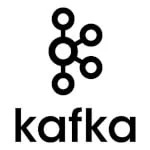Software Development
How to Extract a Date Part in SQL
The Modern SQL Twitter account (by Markus Winand) published a hint about how to extract a date part in SQL:
The right way to get a part of a date/time is:
EXTRACT(YEAR FROM CURRENT_DATE) = 2015http://t.co/UNLyUoQdVb
Retweet to spread the word!
— Modern SQL (@ModernSQL) February 24, 2015
Is it true? Yes it is, in the SQL standard and in a variety of standards-compliant databases. But let’s check what jOOQ does when you run the following program on all 18 currently supported RDBMS:
import static org.jooq.impl.DSL.currentDate;
import static org.jooq.impl.DSL.extract;
import static org.jooq.impl.DSL.using;
import java.util.stream.Stream;
import org.jooq.DatePart;
import org.jooq.SQLDialect;
public class Extract {
public static void main(String[] args) {
// Get all distinct SQLDialect families
Stream
.of(SQLDialect.values())
.map(SQLDialect::family)
.distinct()
.forEach(family -> {
System.out.println();
System.out.println(family);
// Get all supported date parts
Stream
.of(DatePart.values())
// For each family / part, get the
// EXTRACT() function
.map(part -> extract(currentDate(), part))
.forEach(expr -> {
System.out.println(
using(family).render(expr)
);
});
});
}
}The output is:
Open Source databases
DEFAULT
extract(year from current_date())
extract(month from current_date())
extract(day from current_date())
extract(hour from current_date())
extract(minute from current_date())
extract(second from current_date())
CUBRID
extract(year from current_date())
extract(month from current_date())
extract(day from current_date())
extract(hour from current_date())
extract(minute from current_date())
extract(second from current_date())
DERBY
year(current_date)
month(current_date)
day(current_date)
hour(current_date)
minute(current_date)
second(current_date)
FIREBIRD
extract(year from current_date)
extract(month from current_date)
extract(day from current_date)
extract(hour from current_date)
extract(minute from current_date)
extract(second from current_date)
H2
extract(year from current_date())
extract(month from current_date())
extract(day from current_date())
extract(hour from current_date())
extract(minute from current_date())
extract(second from current_date())
HSQLDB
extract(year from current_date)
extract(month from current_date)
extract(day from current_date)
extract(hour from current_date)
extract(minute from current_date)
extract(second from current_date)
MARIADB
extract(year from current_date())
extract(month from current_date())
extract(day from current_date())
extract(hour from current_date())
extract(minute from current_date())
extract(second from current_date())
MYSQL
extract(year from current_date())
extract(month from current_date())
extract(day from current_date())
extract(hour from current_date())
extract(minute from current_date())
extract(second from current_date())
POSTGRES
extract(year from current_date)
extract(month from current_date)
extract(day from current_date)
extract(hour from current_date)
extract(minute from current_date)
extract(second from current_date)
SQLITE
strftime('%Y', current_date)
strftime('%m', current_date)
strftime('%d', current_date)
strftime('%H', current_date)
strftime('%M', current_date)
strftime('%S', current_date)Commercial databases
ACCESS
datepart('yyyy', date())
datepart('m', date())
datepart('d', date())
datepart('h', date())
datepart('n', date())
datepart('s', date())
ASE
datepart(yy, current_date())
datepart(mm, current_date())
datepart(dd, current_date())
datepart(hh, current_date())
datepart(mi, current_date())
datepart(ss, current_date())
DB2
year(current_date)
month(current_date)
day(current_date)
hour(current_date)
minute(current_date)
second(current_date)
HANA
extract(year from current_date)
extract(month from current_date)
extract(day from current_date)
extract(hour from current_date)
extract(minute from current_date)
extract(second from current_date)
INFORMIX
year(current year to day)
month(current year to day)
day(current year to day)
current year to day::datetime hour to hour::char(2)::int
current year to day::datetime minute to minute::char(2)::int
current year to day::datetime second to second::char(2)::int
INGRES
extract(year from current_date)
extract(month from current_date)
extract(day from current_date)
extract(hour from current_date)
extract(minute from current_date)
extract(second from current_date)
ORACLE (in jOOQ 3.5)
to_char(trunc(sysdate), 'YYYY')
to_char(trunc(sysdate), 'MM')
to_char(trunc(sysdate), 'DD')
to_char(trunc(sysdate), 'HH24')
to_char(trunc(sysdate), 'MI')
to_char(trunc(sysdate), 'SS')
ORACLE (in jOOQ 3.6)
extract(year from current_date)
extract(month from current_date)
extract(day from current_date)
extract(hour from cast(current_date as timestamp))
extract(minute from cast(current_date as timestamp))
extract(second from cast(current_date as timestamp))
SQLSERVER
datepart(yy, convert(date, current_timestamp))
datepart(mm, convert(date, current_timestamp))
datepart(dd, convert(date, current_timestamp))
datepart(hh, convert(date, current_timestamp))
datepart(mi, convert(date, current_timestamp))
datepart(ss, convert(date, current_timestamp))
SYBASE
datepart(yy, current date)
datepart(mm, current date)
datepart(dd, current date)
datepart(hh, current date)
datepart(mi, current date)
datepart(ss, current date)Yes. The standard… If only it were implemented thoroughly…
| Reference: | How to Extract a Date Part in SQL from our JCG partner Lukas Eder at the JAVA, SQL, AND JOOQ blog. |





please can you help me to develop a program that will enable a user to log in and show the time the log in process took place